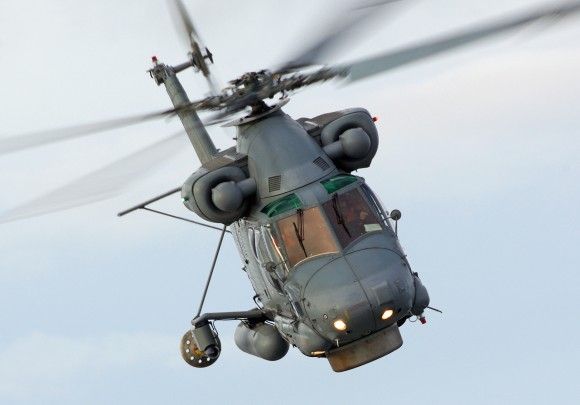- WIADOMOŚCI
- ANALIZA
Slovakia Endorses Reinforcement of the NATO Eastern Flank. Waszczykowski visits Bratislava.
Slovakian Minister of Foreign Affairs assured that he endorses the concept, according to which NATO bases shall be established within the territories of the NATO member states which are requesting additional presence of the alliance.Witold Waszczykowski, his Polish counterpart, expressed his interest in expansion of the regional defence collaboration, noting that: Our region must create realistic deterrence and defence capabilities.
Miroslav Lajcak, Slovakian Minister of Foreign Affairs, during the press conference involving the Polish Foreign Affairs Minister, Witold Waszczykowski, expressed his “full understanding” for the effort undertaken by the Central-Eastern European NATO member states, the aim of which is to create NATO bases within their territories. At the same time he noted that Bratislava, at the moment, does not feel threatened in a way that would justify establishment of large NATO facilities within its territory, and that such bases are not required in Slovakia.
Miroslav Lajcak, Slovakian Minister of Foreign Affairs, during the press conference involving the Polish Foreign Affairs Minister, Witold Waszczykowski, expressed his “full understanding” for the effort undertaken by the Central-Eastern European NATO member states, the aim of which is to create NATO bases within their territories. At the same time he noted that Bratislava, at the moment, does not feel threatened in a way that would justify establishment of large NATO facilities within its territory, and that such bases are not required in Slovakia.
We are interested in identifying the areas, in which potential defence collaboration may be established. Our region must create realistic deterrence and defence capabilities. This will also be visible in our priorities during the NATO summit.
Witold Waszczykowski, Polish Minister of Foreign Affairs, also referred to the meaning of the regional defence cooperation, and of the deterrence and defence capabilities. He emphasized the fact that deployment of the NATO defensive systems and facilities in the Central-Eastern Europe will have a contributing impact on the regional security. Waszczykowski noted that Poland defence spending is contained in an amount which is equivalent to 2% of the GDP, which means that the Army modernization programmes are being continued.
Slovakia also increases its defence expenditure, even though the structural cuts implemented in the preceding years had a much wider scope than the ones introduced in Poland. Bratislava also had made certain declarations related to increase of the defence funding, up to the level of 1.6% of the GDP, by 2020. At the moment, GDP contribution to the defence spending is defined by an amount of 1.1%, according to the NATO data. Slovakia used to spend 1.0% of its GDP on the defence purposes. Slovakia also has initiated several modernization programmes, including the programme in which the US-made Black Hawk helicopters are going to be purchased. Bratislava government is also negotiating the contract, the goal of which would be to acquire the Scipio ACP, a derivative of the Polish Rosomak vehicle, featuring a turret developed by the Slovakian industry.
Declaration made by the Slovakian MFA, regarding the endorsement of reinforcement of the “Eastern Flank”, without any steps taken to establish the NATO presence domestically is compliant with the arrangements made during the meeting of the Presidents of the Central-Eastern European states, which took place in Romania. All of the member states will support the expanded NATO presence where required. Above all, this concerns the Baltic Republics and Poland – it is perfectly natural, as these member states have their borders adjacent to the border of the Russian Federation, viewed as a current threat.
Other states located in the region, including Slovakia or Hungary, did not take any steps towards achieving significant permanent NATO presence within their territories. They are also willing to establish a closer economic relationship with Russia. The above does not mean that the states are not endorsing the reinforcement postulated by some of the other countries of the region, particularly the ones that are the neighbours of Russia. Slovakia, Hungary and other countries are also making steps towards restoring the capabilities, which have been reduced as a result of the cuts. The above is expressed by a gradual increase of the defence budgets. Slovakia, as well as Hungary decided to establish NATO Force Integration Units, the mission of which is to support the NATO VJTF element, so called “Spearhead”.
V4 group states are currently quite aware of the Russian threat, and they support the effort in which the defensive system is bolstered, even though they are willing to maintain a close relationship with Moscow. The main Russian media outlets focused on reporting the yesterday’s negotiations between the MFA’s regarding the NATO bases, which does not reflect the Bratislava’s stance in the light of the reinforcement of NATO presence in the countries that are asking for such steps to be taken.
















